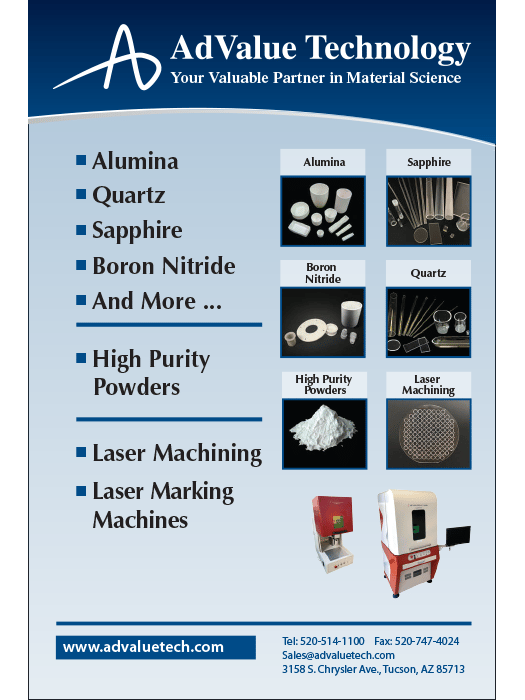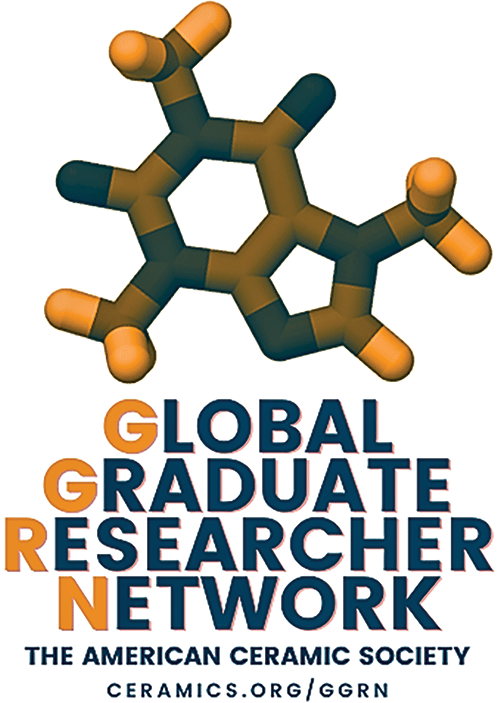
acers spotlight
Society/Division/Section/Chapter News
For more information: ceramics.org
Welcome new ACerS Corporate Partner
ACerS is pleased to welcome its newest Corporate Partner: SK Fine Co.
To learn about the benefits of ACerS Corporate Partnership, contact Marcus Fish, director of development and industry relations, at 614-794-5863 or mfish@ceramics.org.

Bioceramics Division leaders help co-chair Indo-German Workshop
ACerS Bioceramics Division chair Bikramjit Basu (Indian Institute of Science, Bangalore) and Aldo R. Boccaccini (Friedrich-Alexander-Universität Erlangen-Nürnberg) helped co-chair an Indo-German Workshop (BIODENT) on “Design and manufacturing of biomaterials and implants for dental, cranio-maxillofacial reconstruction and bone regeneration” in February 2023. The workshop took place at the University of Erlangen-Nuremberg, Germany. Basu (front row, fourth from right) and Boccaccini (front row, third from right) are pictured with workshop attendees.

Attend your Division business meeting at MS&T23
Six ACerS Divisions will hold executive and general business meetings at ACerS Annual Meeting at MS&T23 in Columbus, Ohio. General business meetings will be held Monday or Tuesday in the Greater Columbus Convention Center. Plan to attend to get the latest updates and to share your ideas with Division officers.
Monday, Oct. 2
- Glass & Optical Materials Division: 11 a.m.–12 p.m.
- Electronics Division: Noon–1 p.m.
- Engineering Ceramics Division: Noon–1 p.m.
- Bioceramics Division: 2–2:30 p.m.
- Energy Materials and Systems Division: 5:30–6:30 p.m.
Tuesday, Oct. 3
- Basic Science Division: Noon–1 p.m.
ADVERTISEMENT
Volunteer spotlight
ACerS Volunteer Spotlight profiles a member who demonstrates outstanding service to the Society.
Jacob Jones is Kobe Steel Distinguished Professor of Materials Science and Engineering at North Carolina State University. He also serves as director of the Science and Technologies for Phosphorus Sustainability Center and director of the Research Triangle Nanotechnology Network. Since 2012, he has been a senior visiting fellow in the School of Materials Science and Engineering at the University of New South Wales in Sydney, Australia.
Jones received his B.S. and M.S. degrees in mechanical engineering from Purdue University in 1999 and 2001, respectively, and then a Ph.D. in materials engineering from Purdue in 2004. His research involves developing structure–property–processing relationships in emerging functional materials, including dielectric, ferroelectric, and functional nanomaterials, primarily using advanced X-ray and neutron scattering tools.
Jones has been a member of ACerS since 2002 and was elevated to ACerS Fellow in 2015. He participates in the Basic Science and Electronics Divisions, and he helped found and served as chair of the Carolinas Section from 2020 to early 2023. He is senior author on two manuscripts awarded the Edward C. Henry “Best Paper” awards from the Electronics Division.
We extend our deep appreciation to Jones for his service to our Society!
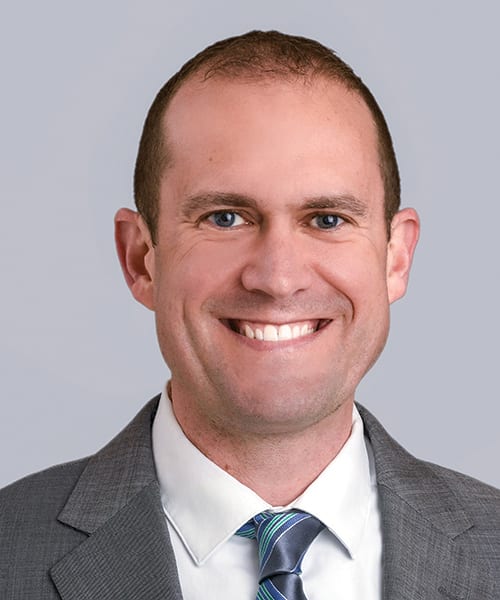
Jacob Jones
In Memoriam
- Allen Apblett
- Rolf Janssen
Some detailed obituaries can also be found on the ACerS website.
ACerS@ECerS Get Together during ECerS biennial conference

ACerS members from the United States and Europe celebrated the U.S. 4th of July holiday at an “ACerS@ECerS Get Together” event during ECerS biennial conference in Lyon, France, July 2–6, 2023.
ACerS members from the United States and Europe celebrated the U.S. 4th of July holiday at an “ACerS@ECerS Get Together” event during ECerS biennial conference in Lyon, France, July 2–6, 2023.
Remembering ACerS past president John B. “Jack” Wachtman, Jr.
The American Ceramic Society has lost an esteemed member—John B. “Jack” Wachtman died on Dec. 13, 2023, at the age of 94. He is predeceased by his wife, Edith V. Wachtman.
Wachtman grew up in the small town of Conway, S.C., where he attended public schools. During his early school years, Wachtman was influenced by the discovery of geometry, algebra, and physics. He applied for and received a scholarship from Carnegie Institute of Technology (now Carnegie Mellon University) in Pittsburgh, Pa.
Wachtman received B.S. and M.S. degrees in physics from Carnegie Tech and was a research and teaching assistant there from 1949–1951. Wachtman stated in his memoir that “my time at Carnegie was perhaps the highlight of my life. I loved the intellectual life and companionship of the students. The curriculum was designed to give scientists and engineers some degree of liberal arts education to the extent that this was possible.”
Wachtman joined the National Bureau of Standards (NBS, now the National Institute of Standards and Technology [NIST]) in 1951 as a physicist in the Engineering Ceramics Division. He received his Ph.D. in physics from the University of Maryland in 1961.
Wachtman left NBS in 1983 and began a second career as the first director of the Center for Ceramic Research at Rutgers, The State University of New Jersey–New Brunswick. During his 12 years at Rutgers, Wachtman taught courses on characterization and mechanical properties of ceramics intended for seniors and incoming graduate students.
After retiring from Rutgers, Wachtman wrote books based on the courses he taught. One of these books, Mechanical properties of ceramics, was published in 1996; a revised, second edition that was co-authored with his Rutgers colleagues Roger Cannon and John Matthewson published in 2009. These books were well received, with the first book selling 500 copies in the first six months. According to George Quinn (retired, NIST), these books are by far the best and most balanced textbooks on the topic.
In 1989, Wachtman took on the part-time role as technical editor for ACerS publications, a position he held for 12 years. During this time, his principal focus was on Journal of the American Ceramic Society. In his final year as editor, he, along with ACerS staff, succeeded in putting JACerS online with a subscription system. According to Mark Mecklenborg, ACerS executive director, “Having Dr. Wachtman involved in this process was essential. His knowledge, expertise, and commitment to the Society positioned the journal for success for many years to come.”
One of Wachtman’s final contributions to ACerS was editing the book Ceramic innovations in the 20th century. This book, published in 1999, coincided with the 100th anniversary of the founding of ACerS.
Wachtman collected a multitude of honors from various organizations, including NBS. In his memoir, Wachtman mentioned that the most meaningful honor to him was the election to the International Academy of Ceramics in 1988, as well as serving as president of The American Ceramic Society (1978) and the Federation of Materials Societies (1975). He was a Distinguished Life Member and an ACerS Fellow.
Wachtman was such an inspiration to so many people that it is fitting he ends his memoir with this closing quotation by polymath Albert Schweitzer: “At times our own light goes out and is rekindled by a spark from another person. Each of us has cause to think with deep gratitude of those who have lit the flame within us.”
Editor’s notes:
ACerS appreciates NIST Library for sharing the “Oral history interview of John B. Wachtman,” Feb. 4, 2010, and Wachtman’s 24-page “Memories and reflections on a career as a scientist-engineer in research management, teaching, and editing,” 2009, revised 2010.
Wachtman also featured in the December 1999 Ceramic Bulletin (Vol. 78, No. 12), pp. 36–41, “Profiles in ceramics” by Kathy Woodward.
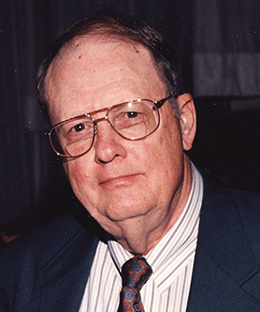
John B. “Jack” Wachtman, Jr.
Adrian C. Wright, Distinguished Life Member, 1944–2023
Adrian Carl Wright, ACerS Distinguished Life Member and ACerS Fellow, died on March 22, 2023, at the age of 79. Wright, who dedicated his research career to understanding glass structure, was a member of the Glass & Optical Materials Division and also active in the Society for Glass Technology, where he served as the 49th president from 2002–2004.
Wright was professor of amorphous solid-state physics at the University of Reading, U.K. He earned his B.Sc. in chemistry, Ph.D. in physical chemistry, and D.Sc. degrees from the University of Bristol, U.K. After completing his Ph.D. studies, he took a position in 1969 at the University of Reading, where he remained until his retirement as professor emeritus in 2007.
He spent three sabbatical years in the United States working at leading institutions, including Xerox Palo Alto Research Center; Stanford Synchrotron Radiation Laboratory; Argonne National Laboratory; University of California, Los Angeles; University of Florida; and New York State College of Ceramics at Alfred University.
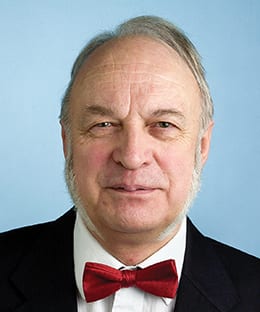
Adrian C. Wright
Wright pioneered use of neutron scattering and modeling studies to understand the structure and dynamics of a wide range of inorganic glasses and other amorphous solids, including silicate, borate, borosilicate, phosphate, chalcogenide, and fluoroberyllate glasses. He had more than 200 publications in the scientific literature, and he sat on the editorial boards of Journal of Non-Crystalline Solids and Fizika i Khimiya Stekla (Soviet/Russian Journal of Glass Physics and Chemistry).
Wright received several prestigious awards, including Fellow in 1995 of both ACerS and the Society of Glass Technology. In 1990, he shared the Worshipful Company of Glass Sellers of London Award, and in 1996, he received the ACerS Glass &
Optical Materials Division George W. Morey Award for his establishment of the field of amorphography. He presented the 2006 Samuel R. Scholes Lecture at the New York State College of Ceramics at Alfred University, and he was made an Honorary Fellow of the Society of Glass Technology in 2009.
Most recently, he shared the 2012 Otto Schott Research Award for “his lifelong outstanding scholarly work devoted to the experimental study of glass structure in general.” In 2014, he presented the ACerS Edward Orton Jr. Memorial Lecture, titled “My borate life: An enigmatic journey,” at ACerS Annual Meeting at MS&T in Pittsburgh, Pa. He served on the Steering Committee and Council of the International Commission on Glass. In 2016, he was designated an ACerS Distinguished Life Member.
“He was the consummate scientist and had many original ideas. He was productive until the end of his life,” says colleague Steve Feller, B.D. Silliman Professor of Physics at Coe College, Iowa.
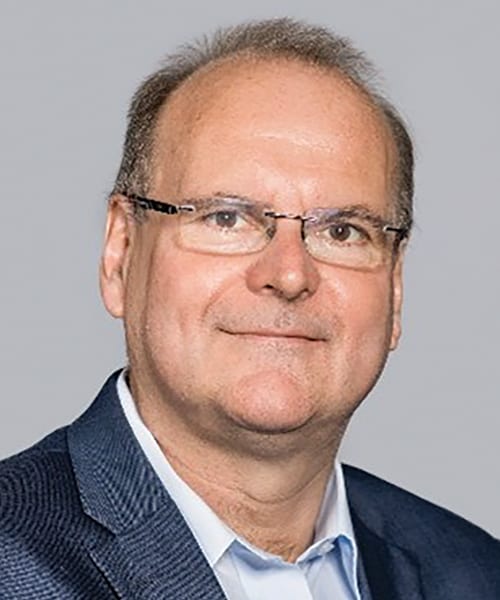
Alexander Michaelis
Names in the news
Members—Would you like to be included in the Bulletin’s Names in the News? Please send a current head shot along with the link to the article to mmartin@ceramics.org. The deadline is the 30th of each month.
Alexander Michaelis was honored with the Rieke Ring of the Deutsche Keramische Gesellschaft e. V. (German Ceramic Society) for his many years of commitment to the DKG. The award ceremony took place on March 29, 2023, at the 98th DKG Annual Conference in Jena, Germany.
Awards and Deadlines
For more information: ceramics.org/members/awards
2024 Class of Fellows: Nominations deadline is Jan. 15, 2024
The ACerS Fellow designation recognizes members who have made outstanding contributions to the ceramic arts or sciences through productive scholarship or conspicuous achievement in the industry or by outstanding service to the Society. Nominees shall be persons of good reputation who have reached their 35th birthday and who have been members of the Society at least five years continuously. Questions may be directed to Erica Zimmerman at ezimmerman@ceramics.org.
Do you qualify for Emeritus membership?
If you will be 65 years old (or older) by Dec. 31, 2023, and will have 35 years of continuous membership in ACerS, you are eligible for Emeritus status. Note that both criteria must be met. Emeritus members enjoy waived membership dues and reduced meeting registration rates. To verify your eligibility, contact Erica Zimmerman at ezimmerman@ceramics.org.
Nominations for Division Awards
- Deadline: Nomination deadlines for Division awards are XXX
- Contact: Karen McCurdy
Nominations for Society Awards
- Deadline: Nomination deadline is XXX
- Contact: Email Erica Zimmerman or call 614.794.5821.
Students and Outreach
For more information: ceramics.org/resources-for-students
ACerS Ceramographic exhibit and competition
The Roland B. Snow Award is presented to the Best of Show winner of the 2023 Ceramographic Exhibit & Competition organized by the Basic Science Division.
This unique competition, held at ACerS Annual Meeting at MS&T, which this year takes place Oct. 1–4, 2023, in Columbus, Ohio, is an annual poster exhibit that promotes the use of microscopy and microanalysis in the scientific investigation of ceramic materials. Winning entries are featured on the back covers of Journal of the American Ceramic Society.
Poster entries are due Sept. 30, 2023. Learn more and apply here.
Ceramic Mug Drop Contest
The Ceramic Mug Drop contest at ACerS Annual Meeting at MS&T provides students the opportunity to demonstrate their prowess in designing and manufacturing a ceramic mug possessing high strength, mechanical reliability, and/or aesthetics. Mugs fabricated by students from ceramic raw materials are judged (separately) on aesthetics and then by dropping them from ever-increasing heights. The mug with the highest successful drop height will win. The Ceramic Mug Drop Contest is sponsored by Keramos. Visit www.matscitech.org/MST23 for more information.
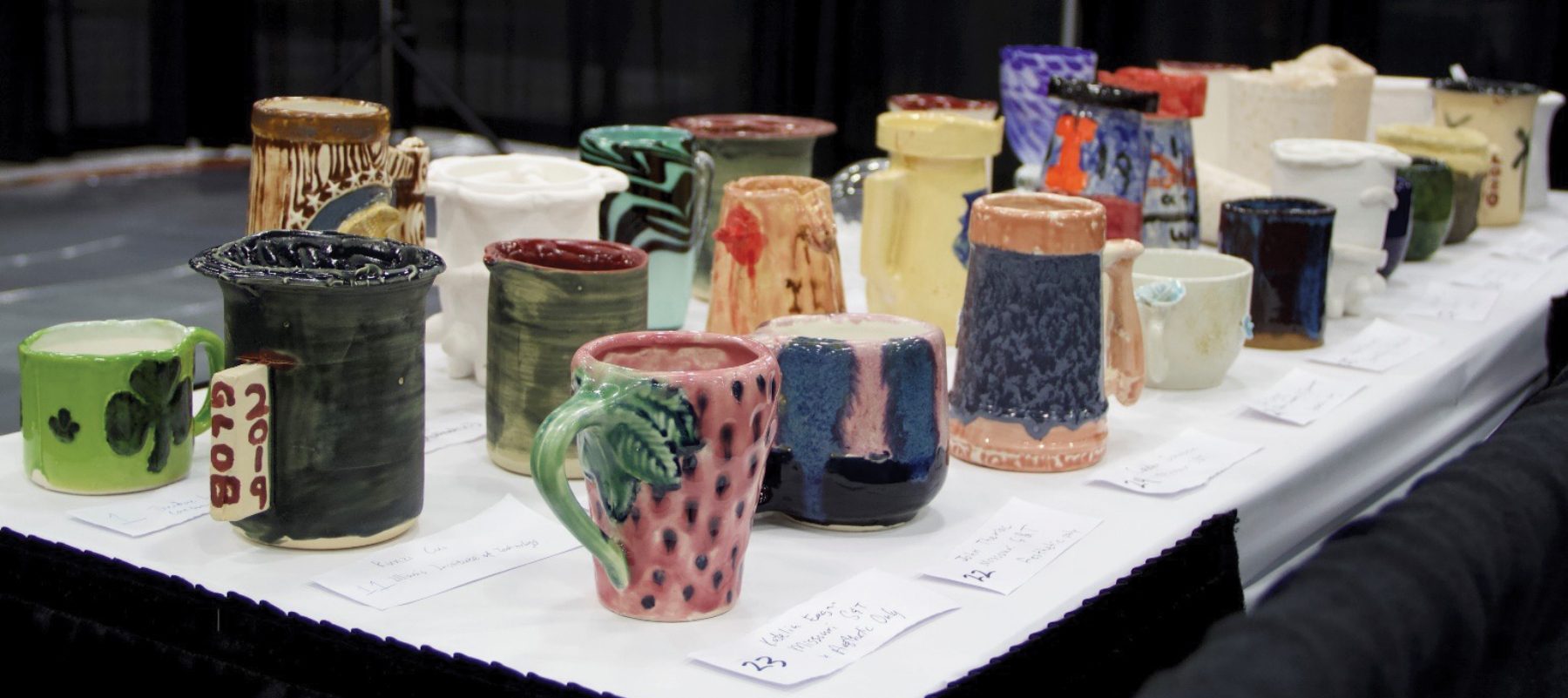
Ceramic Disc Golf Contest
The Ceramic Disc Golf contest at MS&T always draws a crowd! Students create discs from ceramic or glass materials to meet certain specifications, and the discs are thrown into a regulation disc golf basket. Each disc will be judged in the categories of farthest distance achieved and aesthetics. The disc that is successfully thrown into the disc golf basket from the farthest distance in the fewest number of shots will be named winner of the Ceramic Disc Golf Contest, and the most aesthetically pleasing/creative disc will be recorded as “Best Looking” disc. The Ceramic Disc Golf Contest is sponsored by Keramos. Visit www.matscitech.org/MST23 for more information.
Give GGRN a ‘like’ on Facebook!
Whether you are an ACerS Global Graduate Researcher Network (GGRN) member or not, we invite you to join us on Facebook to stay up to date with ACerS news, opportunities, competitions, career development tips & tricks, and more.
If you are not a current GGRN member but are a graduate student or working towards your Ph.D. and your work includes ceramics or glass, be sure to stop by www.ceramics.org/ggrn to join GGRN today.
Introducing ‘Outreach in a Box’: Bring materials science education into your local community
The Ceramic and Glass Industry Foundation (CGIF) is thrilled to announce the launch of its newest program, Outreach in a Box!
This initiative is designed to bring materials science education directly to your local community with the help of dedicated volunteers like you. With Outreach in a Box, CGIF provides resources and guidance for hosting engaging outreach events, conveniently packaged in one comprehensive toolkit.
What is in the toolkit?
Each toolkit contains a wealth of valuable resources, including
- Suggested planning timeline. The CGIF has outlined a step-by-step timeline to help you organize and execute your outreach event. From initial preparations to post-event follow-ups, the timeline helps you sort through crucial details.
- Approximate budgets. The CGIF has included approximate budgets for each outreach event, giving you a clear idea of the financial requirements involved. These budgets are flexible and can be adjusted based on your specific circumstances.
- Connection to materials science curriculum. It is important to align outreach activities with educational goals. The CGIF included free lessons that connect to materials science curriculum, thus enhancing the learning experience and providing a strong foundation for students to explore the world of materials science.
- Tips and tricks for hosting a successful event. The toolkit is packed with valuable tips and tricks gathered from experienced event organizers. Whether it is managing logistics, engaging with attendees, or ensuring safety, these resources provide valuable insights to make your event a resounding success.
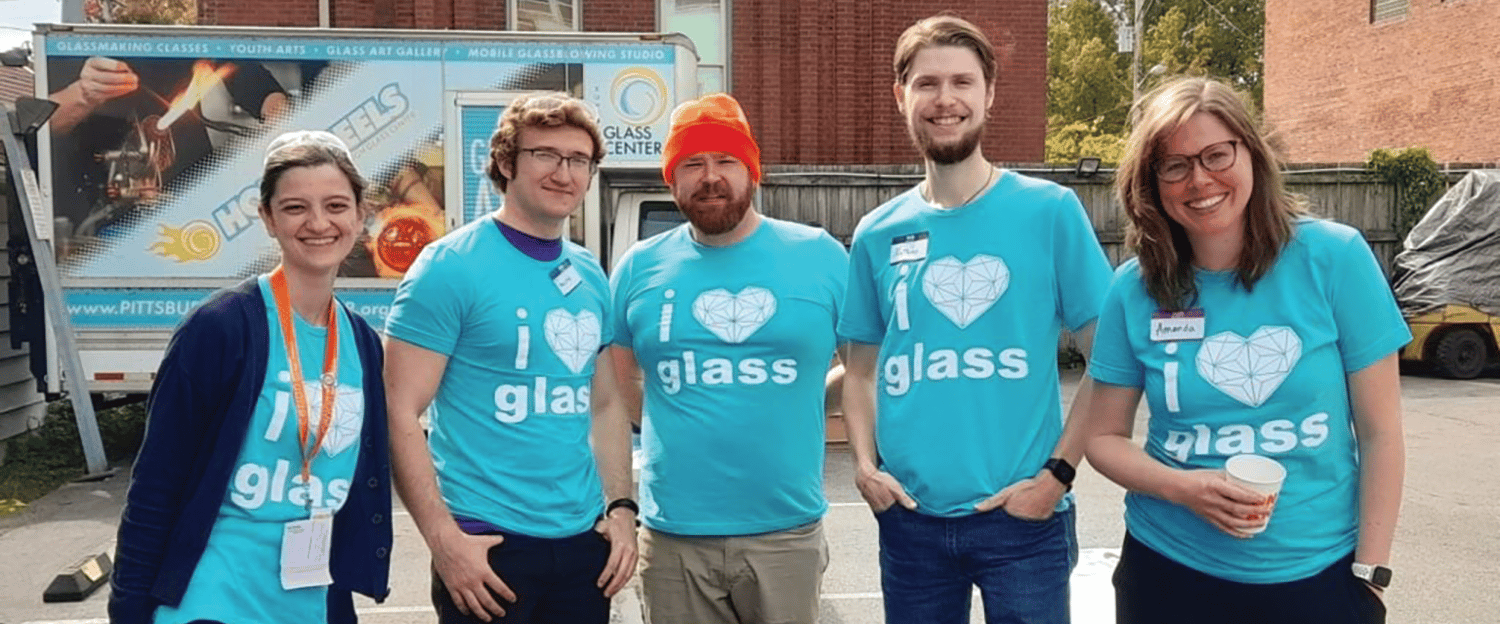
Volunteers at CGIF’s inaugural GLOW event, which took place during ACerS Annual Meeting at MS&T22 in Pittsburgh, Pa. From left: Alfred University graduate students Elizabeth Tsekrekas, Jacob Kaspryk, and Lucas Greiner; The Pennsylvania State University graduate student Nathan McIlwaine; and CGIF program manager Amanda Engen.
Get started today with GLOW!
The CGIF is excited to announce that its first Outreach in a Box toolkit, GLOW: Glass Learning Opportunity Workshop, is now available for free download.
GLOW introduces middle and high school students to a hot glass demonstration plus a career panel. The workshop’s primary objective is to provide students an immersive experience where they not only witness the art of glass blowing but also learn the underlying science.
The career panel consists of local industry professionals from the ceramics and glass industry. These professionals share their personal journeys, experiences, and expertise with the students, offering valuable insights into potential career paths within this field. By connecting students with industry experts, GLOW aims to ignite their passion for the ceramics and glass industry, encouraging future exploration of educational and career opportunities.
The combination of hot glass demonstrations, scientific learning, and career exploration makes GLOW a comprehensive and enriching experience for students. It not only exposes them to the beauty and complexity of glass blowing, but it also broadens their horizons by showcasing the practical applications and exciting career prospects within the ceramics and glass industry.
Join us in bringing the excitement of materials science education to communities worldwide with Outreach in a Box. Download the toolkit, explore the possibilities, and get ready to make a lasting impact in your community.

